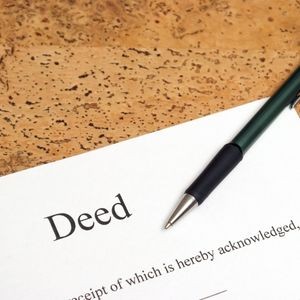
Realestatesworldwide 0 Comments 3655 Views
What is conveyance deed
Know more information on Conveyance deed
Everything you need to know about a conveyance deed and transfer of property ownership
When one tries to buy or sell a property, it is important for people to take care of the legal procedure involved in it, or else frauds can take place. This is also true when the ownership transfer happens within the family, as is with the case of inheritance. To start with, the legal procedures usually involve many documents, possible witnesses and places that one needs to go to in order to validate such agreements. In this article we will focus on a document called conveyance deed, which is often central in such cases.
So what is a conveyance deed?
A conveyance deed is a legal document that is used to transfer ownership of a property from one person to another. It is an important document that is necessary for transfer of property in India, and is used to establish the legal rights and obligations of the parties involved in the transaction. If there are any disputes regarding the property in the future, the conveyance deed can be used as evidence to resolve the issue. It is important to note that a sales deed is a similar legal document that is necessary for buying and selling of property and every sales deed is a conveyance deed, but not vice versa.
However, apart from the answer to what is conveyance deed, one should know all its potential uses. In addition to serving as proof of ownership, the conveyance deed also has other legal implications. For example, if the property is being used as collateral for a loan, the lender will require a copy of the conveyance deed as proof of ownership. Similarly, if the property is being transferred to another person as part of an inheritance, the conveyance deed will be required to establish the ownership rights of the new owner. There are many things that must be present in a conveyance deed to make it valid, so we will look into that to begin with.
Types of Conveyance deeds
There are different types of conveyance deeds that apply to different types of properties. Following are the important types of property deeds.
- Freehold property conveyance deed: this conveyance deed is for freehold properties, legalized by the appropriate authority.
- Leasehold property conveyance deed: leasehold property conveyance deeds are for properties that come under leasehold ownership.
- Mortgage property conveyance deed: This conveyance deed is for a property which is mortgaged.
- Deemed conveyance deed: deemed conveyance deeds apply to entire housing societies that have corresponding cooperative societies within them.
What a Conveyance deed needs to have
To be valid, a conveyance deed must have the following things in it.
- Registered ownership transfer agreement between the parties involved
- Boundaries of the property and exact area
- Power of attorney
- Date of transfer of ownership
- List of legal rights of the previous owner of the property
- Details of How the property will be used after transfer of ownership
- Other terms and conditions
- Signature of witnesses, in addition to the signature of the parties involved.
Here are additional documents required to create what is called a conveyance deed.
- A list of both old and new owners
- Location and survey plan of the land from the appropriate authority
- Certificates like commencement certificate, occupancy certificate, completion certificate wherever applicable
- Power of attorney and development plan in some cases
- Stamp duty payment receipt
- Sometimes a draft conveyance deed is also required
As you can see, there is a long list of items for you to check both in regards to the conveyance deed and inside it to make it valid. Usually, the documents and the conveyance deed itself are validated in the sub-registrar’s office, who usually has the power to approve permits to property claims and transactions.
What to do if a conveyance deed is lost?
It is recommended that one does not lose a conveyance deed, but if you do lose it, here are the things that you need to do immediately according to Indian law to protect your interests.
- A FIR(First Information Report) must be filed in your nearest police station.
- You will need to advertise the loss of your conveyance deed in the local newspaper.
- An affidavit must be prepared with all the property information in it and it must be notarized. This affidavit must also contain the FIR in it.
- One can get a certified copy of the conveyance deed from the sub registrar’s office. However for this you need to provide the documents asked in the office at such a time and this process carries additional charges.
Deemed conveyance deed
When someone is in confusion with the question of what is conveyance deed of society, they must look into a deemed conveyance deed. Deemed conveyance deed is a special type of conveyance deed where the transfer of property is done in the name of a housing society. to get it, one should apply to the concerned authorities, and the application process is a bit different for this deed. If the application process is completed correctly, the state government where you reside in India issues this deed. Both applicants must be present in the concerned authority’s office if this deed is to be made.
A deemed conveyance deed needs the additional following documents to be processed before its approval, apart from the ones that are listed above.
- Land records and municipal records of the housing society.
- Agreement copy of the owner and the concerned party. Agreement copy of each flat is required.
- Approved construction plans.
In addition to the above there are other conditions that must be fulfilled if the conveyance deed is to be issued by the state government. The conditions being that a co-operative society must be formed, at least 60% of the flats must be sold and everyone in the cooperative society must receive the resolution for the conveyance deed.
Conclusion
If you want to transfer ownership of a property, you will need to know what legal procedures you need to follow, and a conveyance deed is among the most important things that you need to be aware of. The conditions and procedures listed above must be followed completely if a property ownership is to be legally transferred. The parties must have at least two witnesses sign the deed and all this can be done on your own, but it is better if one has an informed middleman to guide you. This can be anyone from a lawyer you have a good relationship with to a person working in a good real estate agency. Real estates worldwide is one such agency with lots of expertise in the housing market.
Related Article:
Karnataka Real Estate Regulatory Authority
Stamp Duty and Registration Charges in Bangalore





0 Comments
Submit a Comment